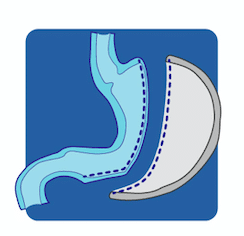
Gastric sleeve surgery, also known as sleeve gastrectomy, is a weight loss operation that involves removing 75-85% of the stomach. The remaining stomach is shaped into a tube, or sleeve, and is about the size of a small banana. This surgery is one of the most popular weight loss surgeries in the world, and it is known for its high success rate and relatively low risk of complications.
How does gastric sleeve surgery work?
Gastric sleeve surgery works in two ways. Firstly, it reduces the amount of food that you can eat at one time. Your new stomach is much smaller than your original stomach, so you will feel full after eating a smaller amount of food. Second, gastric sleeve surgery removes the part of your stomach that produces the hunger hormone ghrelin. This means that you will feel less hungry after surgery.
What are the benefits of gastric sleeve surgery?
Gastric sleeve surgery has many benefits, including:
What are the risks of gastric sleeve surgery?
Like any surgery, gastric sleeve surgery carries some risks. However, the overall risk of complications is relatively low. Some of the potential risks of gastric sleeve surgery include:
Who is a good candidate for gastric sleeve surgery?
Gastric sleeve surgery is recommended for people who:
What is the recovery process like after gastric sleeve surgery?
Most people stay in the hospital for 2-3 days after gastric sleeve surgery. After surgery, you will need to follow a strict diet to allow your stomach to heal. You will start with a liquid diet and gradually move up to a solid diet over several weeks. You will also need to take vitamins and supplements to prevent nutritional deficiencies.
What is the long-term outlook after gastric sleeve surgery?
Gastric sleeve surgery is a very effective weight loss procedure. Most people who have gastric sleeve surgery are able to lose significant weight and keep it off in the long term. However, it is important to follow a healthy diet and exercise regularly after surgery to maintain your weight loss.
Additional information for non-medical readers
Here are some additional things to keep in mind if you are considering gastric sleeve surgery:
If you are considering gastric sleeve surgery, talk to your doctor to learn more about the risks and benefits of this procedure. They can help you to decide if gastric sleeve surgery is the right option for you.